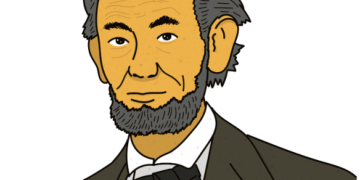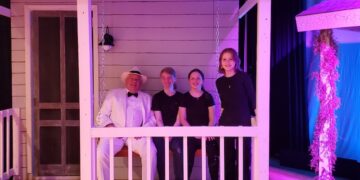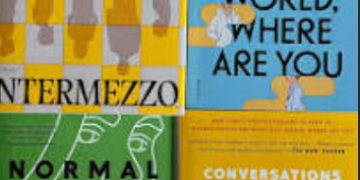By Michael Strawderman
This month, The Off Broadway Players will kick off their 2024 Season with a theatrical adaptation of Harper Lee’s literary classic, To Kill a Mockingbird. As the director of this production, my decision to tackle this beautifully crafted but, at times, uncomfortable story about racism in a small Alabama town in the 1930’s was a no-brainer. Despite the fact that it was written over 60 years ago, I believe that the messages in To Kill a Mockingbird still have relevance in our current times. In fact, as a society still wrestling with issues like racism, acceptance of others, and a renewed controversy regarding the banning of books, there’s no better time than the present to revisit this story.
The heart of To Kill a Mockingbird, of course, is about overwhelming prejudice and malice towards an African American named Tom Robinson who is wrongly accused of a crime and pays for it with his life. When Harper Lee wrote her Pulitzer-Prize winning novel back in 1960, the results of the Civil War had abolished slavery, but still hadn’t ended discrimination against African Americans. They couldn’t use the same public facilities as white people, live in many of the same towns or even go to the same schools. And while the playing field for African-Americans (and other ethnicities) nowadays is much more level than it was during the setting of the show, we still bear witness to incidents of systemic racism. When a person is more readily suspected of criminal activity simply based on the color of their skin or an ethnicity is categorized as being comprised of “rapists and murderers”, our country still can’t, in good conscience, declare that “all men are created equal”.
But To Kill a Mockingbird is more than just a history lesson on racial inequality. The acceptance of others who we deem to be “different” or unworthy of respect is another important theme that runs throughout the story. In the play, the imaginations of the children are captured by the tall tales and legends that they’ve been told about a mysterious man named Boo Radley who lives at the end of their street. Jem has been led to believe that Boo is some horrific monster locked up in his house that’s “six-and-a-half feet tall . . has teeth that are yellow and rotten . . . and most of the time drools.” The reality that the children ultimately learn is that Boo is none of these things. In fact, Boo is the unexpected hero in this show, overcoming his own quirkiness to save the children in an act of humanity. And while I admit that I am just as guilty as the next person to be quick to judge people whose lifestyle and personal choices lie outside of my definition of what is “normal”, the reality is that, unless a person is doing something illegal or impacting us personally, it’s really none of our business.
Considered one of the best novels of the 20th century, To Kill a Mockingbird is also one of the most controversial. According to the American Library Association’s Office for Intellectual Freedom, it is one of the most challenged and banned classical books. Many of these objections come from parents, school administrators or advocacy groups who contend that its racially and sexually-charged themes are inappropriate for young children. I understand the reasoning behind the push to ensure that access to some books be based on age-appropriateness, but I do think that we have to exercise extreme caution when it comes to book bannings en masse. Christopher Sergel, the playwright who wrote the adaptation of our show, once acknowledged that he had received many requests for specific words to be changed or removed in this play, but he always denied the requests. “Being uncomfortable with history is not means to change it,” he said. “People need to figure out how to confront issues.” As director, I agree with Mr. Sergel’s opinion and want to make it very clear that our production of To Kill a Mockingbird retains much of the adult language (including racial slurs) and mature themes that appear in the original text – a fair warning for parents to use their discretion on bringing their children to the show.
Aside from all of its thought-provoking messages, I believe that those who attend one of our performances of To Kill a Mockingbird will be equally impressed by its professional quality. Featuring an intergenerational and diverse cast alongside impressive sets and technical effects, I am confident that our production will not only emotionally touch you but also challenge you. But if there is one message that I hope everyone can take away from this theatrical experience, it is Atticus’ beautiful reminder that, “you never really understand a person until you consider things from his point of view . . . until you climb into his skin and walk around in it.” If each of us can take this moral to heart and practice it in our daily lives, we can go a long way in solving many of society’s current injustices and misunderstandings..
To Kill a Mockingbird will be performed in the J. Frank Hillyard Middle School auditorium on May 10, 11, 17, & 18 @ 7 pm and May 12 & 19 @ 3 pm. Tickets are $17 and $15 for seniors and students. All tickets are general admission – no presale or reserved seats. For more information about the show, visit The Off Broadway Players website: offbroadwayva.org.
































